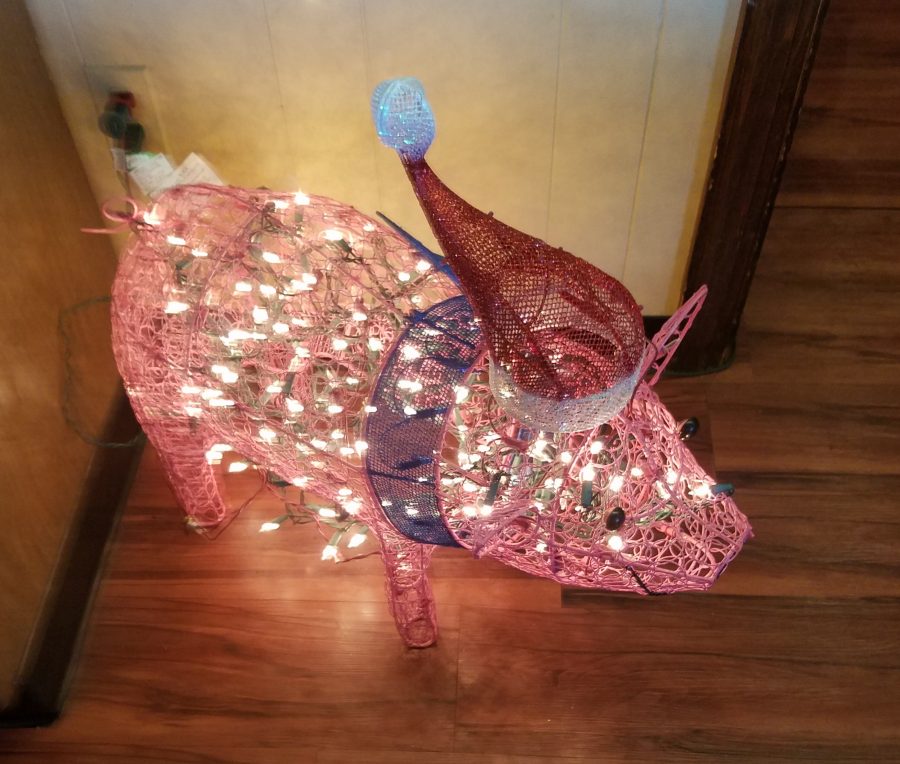Few things empower fiction better than well developed characters. Which is why you don’t want to create unintentional barriers between your characters and your readers. What barriers, you ask? Well, here’s one that affects POV characters:
John knew he was about to learn something important.
Do you see it? The barrier? No? How about here…
Sally realized she wasn’t getting it at all.
This barrier is kind of like those rotten little sugar ants that one day are not to be seen, and the next day are crawling all over your counter. You had no idea they were lurking there, unseen, and suddenly BAM! They’re everywhere! (Okay, rabbit trail here, but if you have these monsters in your house I have two words for you: diatomaceous earth. Gets rid of them like magic!) This sneaky barrier skitters into our writing when we’re not looking and pushes the reader just a step away from our character.
Still not sure what it is? Then consider this. We’re still in John’s and Sally’s POVs:
He was about to learn something important.
She wasn’t getting it at all.
Yup, it’s the knew and realized. If you guessed it, congrats! If you didn’t, not to worry. Now you know.
When writing a POV character, don’t tell us he or she has realized, or knows, or sees, or hears something. Just show the realizing, knowing, seeing, and so on. Because the fact is, if the POV character didn’t realize, know, see, or whatever, we couldn’t either since we’re perceiving the story through them. So this is not only a barrier to the characters, but it’s redundant.
So not:
Bill saw the man coming toward him.
But
A man came toward him.
It’s not a big change, but it’s one that removes a layer of distance—a barrier, in essence—between the reader and your character. Rather than being told about something, the reader experiences it with the character. After all, that’s much of the power of fiction, that our readers experience the journey and the story with the characters. And part of our job as writers is to ensure they can do that with as few barriers as possible.



 The Isolated Writer
The Isolated Writer

This is just clean writing. If there’s a better way to say it, do! Stick to active descriptions. The man approached and terror gripped him, fright so deep that he knew it was futile to consider escape. Nevertheless, he turned to run and scrambled up the hillside, his heart beating out of his chest, his breath in spurts, never daring to look back to see if he was followed.
Other barriers are Christian buzz words with little or no generally established meaning. If the word or phrase has no meaning outside a narrow Christian community, get rid of it, especially if there’s no context for putting it in the mouth of a character. Phrases such as “falling out”, “washed in the spirit”, “washed in the blood”, etc. I have seen all of these in self-published novels and knew that it would be impossible for my non-Christian friends to understand. If you have to explain something in a work of fiction, you have already done a poor job of communication.
Nicely done. I kinda want to know what happens to the man scrambling up the hillside.
Wonderfully wise words, Karen. Thank you for pointing them out. Not only are they barriers, they slow the pace of the story.
Well said, Karen. We need to put ourselves into the character’s skin and see the scene through their eyes.
I learn something new from this site every day. Thank you. 🙂
Me too! Yes, thank you Karen 🙂
Thank you, Karen, and definitely something worth keeping in mind.
And I didn’t know about the diatomaceous earth, either, so that was a laugh AND I learned something useful.
Many thanks for the timely reminder, Karen. I wrote my first three novels in omniscient narrator, and I’m rewriting them in 3rd person limited. One is already published, so it is what it is, but I’m still in the “final final” edit stages with Blind Ambition. I just searched on “thought.” There were more hits than I expected. I know many are referring to a character thinking who is not the POV character, many are in dialogue, and many are used as a noun for the brain activity, but I’m still going to go back through and check every one.
Want to give us a more complete list of the words that we should watch out for? (I know I ended with a preposition, but “for which we should watch” just felt too formal here.)
Thank you for putting into concrete words such an important concept! I can sense when something is said better than another way, but I don’t always know how to put it into words. Thanks for sharing!
Great reminder. I’ve been going thru my manuscript doing this the last few days.
Thank you for the reminder to “show” don’t “tell.” It’s amazing the difference this makes in a novel. Hmm, I see some editing in my future!
Wonderful examples! Thanks for your insights.
It’s so easy to slip back into telling without fully seeing it when I’ve been writing a while and am on a deadline. Making a mental note to check for what you’ve described sure makes a difference. Thanks for the reminder.
Excellent advice. I’m going back to remove barriers.
This is precisely why I cannot/do not write fiction. And kudos to you, Karen. I have read, and heard, so many times, “Don’t tell me. Show me.” For the first time, that cliche makes sense to me. Your examples were spot-on!
Now I understand! Thanks Karen!
It’ s totally clear to me now:) Thank you:)
Thanks, Karen. Very helpful. We hear “show not tell” all the time, but you’ve actually shown what that looks like. =)
I was a business major in college. In senior-year management classes, we were expected to read 75 page case studies and write a summary of the events and impact, and to propose a solution with strong reasoning for why it would work, in under 250 words. I think obsessive minimalism is a healthy exercise for every fiction writer. It’s also extremely difficult to maintain. Thank God for editors!
Well said! This is one of my biggest pet peeves as a reader. As a writer, these barriers creep into my first drafts, but I try to keep an eagle eye out for them when editing.